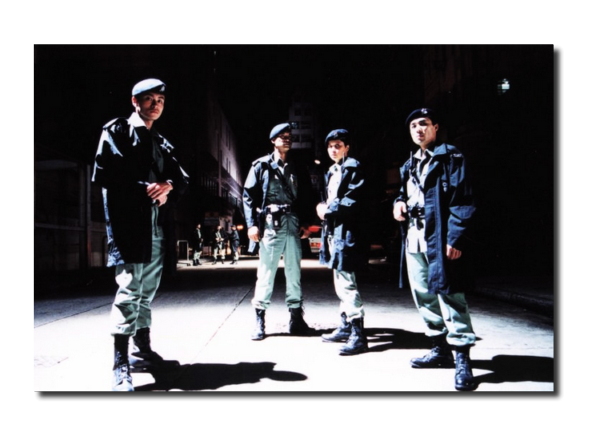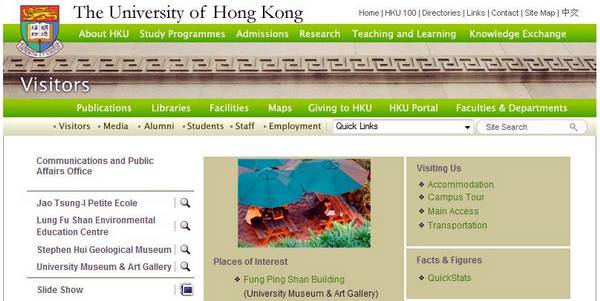 |
Statistics :
11630 Movies
19215 People
1448 Studios
29 Articles
73 Interviews
12 DVD Reviews
32452 Screenshots
3722 Videos
|
|
 |
 |
Addendum: The HK perspective |
3/6 - Page 17 |
 |
 |
 |
 |
 |
|

|
|
“Local critics, like their western counterparts, like to interpret To's films in terms of cultural politics and locality.” |
|
Sebastian Yim is a postgraduate student at the Department of Comparative Literature of the Hong Kong University. His dissertation is, as he puts it, “a critical study of post-1997 hegemonic masculinity in HK cinema.”
(Special thanks to Gina Marchetti)
Q&A conducted by Thomas Podvin (by email), 21/03/2011 |
| |
A Hong Kong postgraduate student and film buff
|
 HKCinemagic:
Marie Jost wrote in her essay: “ The fanboys had embraced To's films beginning with 1993's Heroic Trio and then early Milkyway Image movies such as A Hero Never Dies right through to recent works like Exiled. The critics and festival programmers discovered To in the early 2000s, beginning with The Mission, and have been particularly engaged with his more personal recent films such as Election 1 & 2, Mad Detective and Sparrow. (…) The academy first showed an interest in the films of Johnnie To around 2005. ” HKCinemagic:
Marie Jost wrote in her essay: “ The fanboys had embraced To's films beginning with 1993's Heroic Trio and then early Milkyway Image movies such as A Hero Never Dies right through to recent works like Exiled. The critics and festival programmers discovered To in the early 2000s, beginning with The Mission, and have been particularly engaged with his more personal recent films such as Election 1 & 2, Mad Detective and Sparrow. (…) The academy first showed an interest in the films of Johnnie To around 2005. ”
Was it the same in Hong Kong? Have academics in Hong Kong started to show an interest in To very late? Was it only after he was recognized as a major Asian filmmaker overseas, received awards and was celebrated in countless retrospectives and festivals? |
| Sebastian Yim: As you might know, academics in Hong Kong, if they are interested in HK cinema at all, are mostly trained in the West. So I personally would say they are not really far removed to the ‘West' in terms of critical agenda and scholarly interest. As Jost comprehensively shows, those who seriously engage with To's films with scholarly attention are mostly the so-called ‘non-locals.' Quite unfortunately other scholars well-versed in HK +culture have not paid much attention to To (yet).
However, things are not all that bad. There is a book missing in Jost's account, as far as I remember. It is titled Milkyway Image, Beyond Imagination : Wai Ka-fai + Johnnie To + Creative Team (1996-2005) , to which Western scholars like David Bordwell, Peter Rist, Stephen Teo [and also HK scholars] have contributed articles. It's a book edited by a local cultural critic called Lawrence Pun, and the book is bilingual, making its accessible to both local and global readers. You can see the content here.
About local critics' favourite films, I can say the choice of Hong Kong Film Critics Society is the most representative. They have chosen The Mission, Election 1 and Election 2as the best film of the year in 1999, 2005 and 2006 respectively. To is named the best director with A Hero Never Dies in 1998, The Mission in 1999, PTU in 2003, and Exiled in 2006. Wai Ka Fai is named the best scriptwriter in 2003, 2006, 2009 with Running on Karma, Mad Detective, and Written By respectively. Here is a link to the Hong Kong Film Critics Society webpage in Chinese.

PTU, © Milkyway Image (HK) Ltd., Mei Ah Films Production Co. Ltd. |
| |
 HKCinemagic: It seems that there is no consensus among the film critics about what constitutes Johnnie To's best films in the West. Do you consider that the situation to be similar for HK film critics. HKCinemagic: It seems that there is no consensus among the film critics about what constitutes Johnnie To's best films in the West. Do you consider that the situation to be similar for HK film critics. |
| Sebastian Yim: I think it's the same. Yet in terms of local award recognition, some films do stand out, like Election 1 and 2 and The Mission. |
| |
 HKCinemagic: Is it possible to discuss Johnnie To's films with the notions Western academics use. For instance, Andrew Grossman in his 2001 article for Sense of Cinema, “The Belated Auterism of Johnnie To,” has a hard time fitting To's oeuvre into the framework of either auteur theory or genre theory. Do Hong Kong-based academics use those notions of auteur and genre films to define To cinema? HKCinemagic: Is it possible to discuss Johnnie To's films with the notions Western academics use. For instance, Andrew Grossman in his 2001 article for Sense of Cinema, “The Belated Auterism of Johnnie To,” has a hard time fitting To's oeuvre into the framework of either auteur theory or genre theory. Do Hong Kong-based academics use those notions of auteur and genre films to define To cinema? |
| Sebastian Yim: I am afraid the Hong Kong based academics are not serious with To yet.
Vivian Lee's book on post 1997 Hong Kong cinema (mentioned in Jost's article) is the most visible effort. Of course they use the auteur theory, after all film criticism or film as a form of art originates in the West.
Local critics, like their western counterparts, like to interpret To's films in terms of cultural politics and locality. |
| |
 HKCinemagic: Fate and karma seem to always be of interest for To and his colleague Wai Ka Fai. For instance Running on Karma, which seems to follow Buddhist beliefs have puzzled many Western critics and moviegoers. Mad Detective also contains some very specific ideas non-Chinese viewers might not be familiar with. HKCinemagic: Fate and karma seem to always be of interest for To and his colleague Wai Ka Fai. For instance Running on Karma, which seems to follow Buddhist beliefs have puzzled many Western critics and moviegoers. Mad Detective also contains some very specific ideas non-Chinese viewers might not be familiar with.
As a Hong Kong-based film enthusiast and academic, can you give us a few tips to understand his films better? |
| Sebastian Yim: This is certainly beyond my capacity. I have to say Buddhism is not as prevalent and dominant in China as in, for instance, Thailand. If you really ask the local audience, I guess they will say: “it's all entertainment!” And I have to say the notion of fate and karma puzzle modern people, from the East or the West. |
| |
 HKCinemagic: Marie Jost wrote: “ Given the inconclusive and fragmentary picture that has emerged from 10 years of examining To's movies in the context of genre filmmaking and/or auteur theory, perhaps the time has come to move on and to take a fresh look at his work and attempt to discern different patterns, ones more suggestive of fruitful avenues for future inquiry .” HKCinemagic: Marie Jost wrote: “ Given the inconclusive and fragmentary picture that has emerged from 10 years of examining To's movies in the context of genre filmmaking and/or auteur theory, perhaps the time has come to move on and to take a fresh look at his work and attempt to discern different patterns, ones more suggestive of fruitful avenues for future inquiry .”
Do you agree with this statement and what would be the patterns and avenues a Hong Kong based critic or academic would explore? |
| Sebastian Yim: I cannot predict, of course! The statement is a good one because To is still transforming and producing films. Indeed, Wai Ka Fai, alongside To is also very highly regarded locally as a film talent. This year's HK International Film Festival features Wai Ka Fai as a director and scriptwriter [in focus]! So I think they have somehow moved beyond the limits of auteur (though still trapped in it), by taking a good look at scriptwriters, no longer thinking that the director is everything. |
| |

The University of Hong Kong Website, http://www.hku.hk/ |
|
|
| |
 |
|
|
Page :
1
2
3
4
5
6
7
8
9
10
11
12
13
14
15
16
17
18
19
20
Top
|
|
|
|
|
|
|
 |
